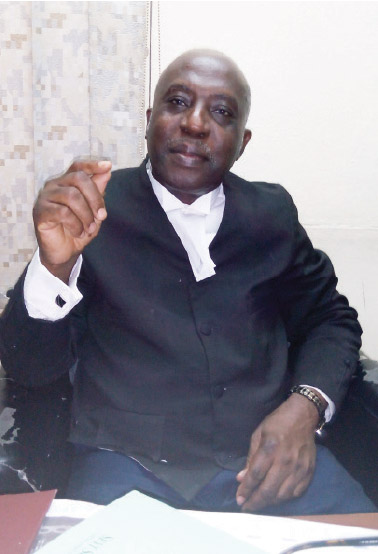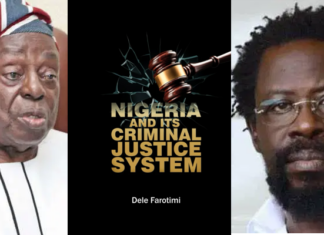Secretary, Body of Senior Advocates of Nigeria, Seyi Sowemimo, speaks with Senior Correspondent, ONYEWUCHI OJINNAKA, on the appointment of justices to the Supreme Court, succession of the Chief Justice, the forthcoming NBA elections, among other issues.
Former Chief Justice of Nigeria (CJN), Muhammadu Lawal Uwais, recently said that senior advocates should not be appointed to the apex court directly. Do you agree with him?
I find that reasoning quite strange that anyone will say that a person who has attained the rank of a senior advocate lacks requisite qualifications to be on the Bench. I really do not appreciate that way of thinking. In England, high court judges are appointed from the ranks of Queen’s Counsel and King’s Counsel in the earlier days. So, I do not see how someone will now say there are some integrity issues. You even find that those appointed into the Bench, who have gone through the civil service, have so much allegations of corruption against them, from the lowest to the highest courts.
So, what sort of integrity issues are we talking about? Even at the level of Supreme Court, there are allegations. I do not see how coming through a civil service structure can be a guarantee for judges not being opened to favours. I do not see the correlation. Until we begin to appoint people from outside government structure, we will continue to have the problem we are having with our judiciary. We will continue to operate our judiciary like the civil service. We need to do things differently. I do not think that Justice Augustine Nnamani went through some civil service structure before he became Justice of the Supreme Court. Appointing people from the practising Bar has worked in other jurisdictions. So, I do not see why it should be different here.
We have a President who also seems to be dissatisfied with the state of our judiciary and who people think may take dramatic steps by introducing some senior practitioners from the bar. If we have been doing something over the years and we have become dissatisfied with it, why not try a different situation? They have tried it in Canada and the United States of America. They bring somebody from outside the rank of justices and make him the Chief Justice, taking him away from the internal politics of the Supreme Court – whereby once a person becomes Chief Justice of the Federation, all other justices cower before him and cease to be independent as they ought to be.
In Nigeria, you have people who believe so much in doing things in line with civil service procedure. Why should people on the Supreme Court Bench be frightened about people coming from the outside? Your greatest asset lies in your intellect.
With many judges queuing up on the Bench for years, will it be fair for a senior advocate from private practice to be appointed as the CJN ahead of them?
Many of these people went to the Bench because they did not have much of a choice. How many lawyers today having thriving practice will accept Bench appointment? It was in the early 1960s that it used to happen. But most of the people you have today got unto the Bench because they do not have much in terms of practice. Some, because they have applied for silk for years and were not given, see the Bench as a viable alternative. This is not somebody’s inheritance where you say you have queued for many years; it is totally a disingenuous argument. Is that how we want to populate our Supreme Court? We want our Supreme Court to be populated by a lot of diversity and lots of robust intellectualism, not people who have civil service mentality.
Many have been in Supreme Court without getting to the position of the CJN. It is political in nature. There is nothing that says the occupant must be appointed according to seniority. You could even pick the lowest justice and make him the CJ. We cannot have a situation where people have positioned themselves on ethnic grounds for that position.
It takes time before one could master the art of writing judgments. If a senior advocate is appointed Justice of Supreme Court, how will he cope at that level?
There is nothing in writing judgment; no exceptional skill is required. If you are a senior advocate, it then means you know the pros and cons of arguments presented by both sides. So, by your training, you will know how to balance the evidence. In fact, it is having practical knowledge in practice that aids your ability on the Bench.
Judges that come from the practising Bar are far better than those that come from the civil service structure. So I do not see anything so unique in judgment writing. Until, Elias became the Chief Justice of Nigeria, he was not a judge; would you then say he was not in a position to write good judgments?
Recently, Body of Senior Advocates of Nigeria (BOSAN) cautioned the federal government and its agencies to ensure that the anti-corruption battle is fought within the ambit of the law, devoid of abuses of the fundamental rights of Nigerians. Would you want to react to this?
I do not think that comment is fair. People saying that seem to have misunderstood the statement we issued. The important thrust of our statement is that, we are wholly supportive of the government in its anti-corruption crusade, but we want them to observe due process. That is the only reasonable position for any lawyer to take. There is a risk that if they fail to do that, they will undermine the credibility of the process itself. I do not think there is anything in our statement that shows we are trying to protect some people. Even in that statement, we made it clear that we are not going to support any member of the body found on the wrong of the law. We do not intend to shield anybody. Nothing in our statement suggests that the government’s anti-corruption fight is not appreciated.
Is there anything wrong in you assisting your colleagues on the bench financially when necessary?
Personally, I do not interact with any of my colleagues who are on the Bench. I do not recall any social interaction with them. Of course, if we meet at any function, we probably greet; but to go to their chambers or their homes to visit them, I cannot even recall in the past 20 years that I have done so. Speaking for myself, that has not been my experience. I have colleagues at the Supreme Court whose names I do not even remember. People tell me that some of our colleagues at the law school are now Justices of the Supreme Court. Until they tell me, I do not even remember. So, the question of following up does not even arise.
But, in any event, it is even wrong to foster any close interaction with any judge because there is bound to be that integrity issue. Even if there is a judge that you want to assist, you must make sure it is not a judge handling your case. If I had a blood brother who was on the Bench, I will say, of necessity, we will interact as close relations. But if we are not related, such assistance could be misinterpreted. One should avoid it, except there’s a way of making disclosure of facts. Honestly, I cannot really explain how a lawyer assisting a judicial officer will not be misinterpreted, especially if that lawyer has case(s) before the judge. So, it is better not to engage in that kind of interaction.
A lawyer has asked a Federal High Court in Lagos to declare sections 221 and 306 of the Administration of Criminal Justice Act illegal. Do you agree?
I am wholly in support of those provisions because the issue of stay of proceedings in criminal trials has been the cause of delays. We have criminal trials being on for years on interlocutory objections, only for the matter to be sent back after several years. I think these provisions are in order. We all need to adjust and try to conduct cases in the framework of that law. It is intended to remove that abuse of delay. If that is the case, we should applaud these reforms.
But it does not mean you cannot appeal. All we are saying is that interlocutory appeals will be taken along with the outcome of the final judgment. They are not saying you cannot appeal, but that while you are appealing, it should not stop trial from going on; otherwise, we will have a situation whereby if that appeal lasts for two or three years, the trial at the high court will stop. By the time you come back from the Appeal Court, you will find that the witnesses are no longer there or you have succeeded in affecting the morale of the prosecution or witnesses.
What are your expectations from the forthcoming election of Nigerian Bar Association (NBA)?
I am happy that it is not going to be delegates’ affairs, but universal suffrage. In terms of democratic principle, I think that should be applauded. So, I am looking forward to a keen election and the election will be on merit and not arranged. We all know that whoever is coming in is by popular vote and not by selection or a stage-managed outcome. It is a good thing.













